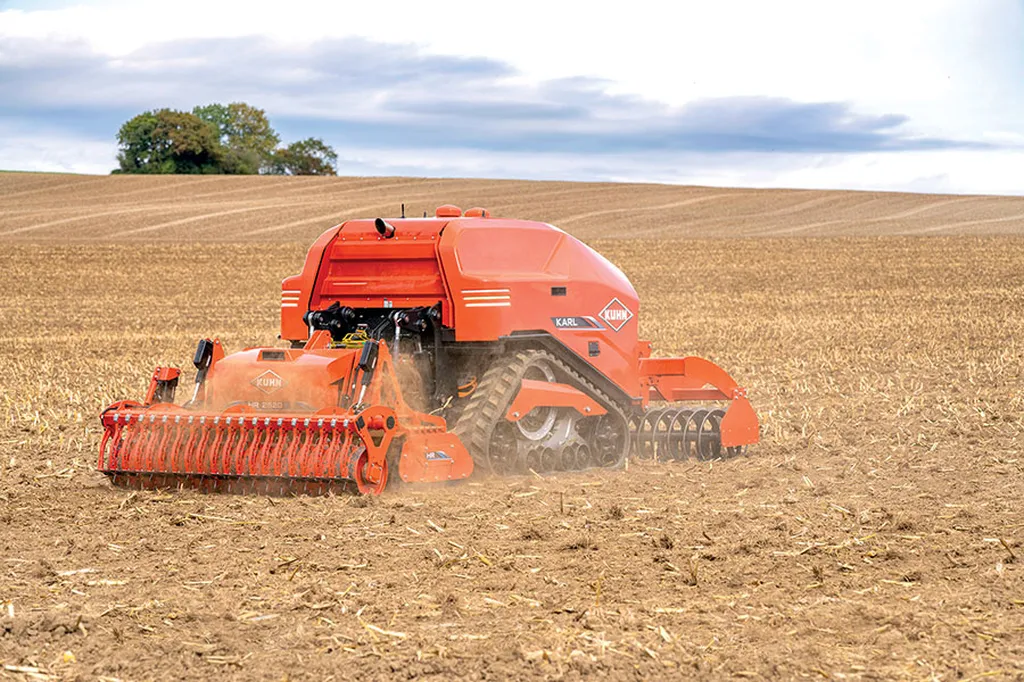In the rapidly evolving landscape of agricultural technology, French machinery manufacturer Kuhn has taken a significant step forward with its autonomous tractor, Karl. First unveiled at Agritechnica two years ago, Karl has since undergone substantial development and is now ready for commercial release. However, Kuhn has decided to postpone the actual launch, citing uncertainties in legislation as the primary reason for this delay.
Karl, an autonomous vehicle built on tracks, will make a return appearance at Agritechnica in 2025. This time, it will be equipped with a cultivator featuring advanced sensors capable of detecting broken tines. Additionally, sensors on the rollers will enable automatic depth control and monitoring, showcasing Kuhn’s commitment to integrating cutting-edge technology into its agricultural machinery.
The development of autonomous vehicles like Karl represents a significant leap forward in agricultural technology. However, building an autonomous vehicle is only part of the challenge. Ensuring that it can operate safely and effectively in real-world conditions requires additional sensors and systems to detect and respond to issues such as tine breakage or blockages. While more solutions are gradually emerging, further development work is still needed in this area.
According to Kuhn’s management, Karl as a vehicle is ready for the market. The machine has undergone extensive testing and improvement over the past two years. During the most recent season, five Karl robots operated in real-world conditions, performing satisfactorily. Despite these positive developments, the commercial launch remains on hold for the time being.
The primary reason for this delay is the uncertainty surrounding the legislation governing the use of autonomous vehicles in agriculture. Different suppliers interpret the existing regulations differently, leading Kuhn to conclude that current legislation is not sufficiently clear to avoid potential liability risks. This regulatory ambiguity poses a significant challenge for companies like Kuhn, which are at the forefront of developing and deploying autonomous agricultural machinery.
The implications of Kuhn’s decision to postpone the launch of Karl are far-reaching. On one hand, it highlights the rapid progress being made in the field of agricultural technology. The development of autonomous vehicles like Karl has the potential to revolutionize farming practices, increasing efficiency and productivity while reducing the need for human labor. On the other hand, it underscores the need for clear and comprehensive legislation to govern the use of these technologies. Without such legislation, companies like Kuhn face significant risks and uncertainties, which can hinder the pace of innovation and deployment.
As the agricultural industry continues to evolve, the need for clear and consistent regulations will become increasingly important. Companies like Kuhn are at the forefront of this transformation, and their efforts to develop and deploy autonomous machinery are crucial for the future of farming. However, without a supportive regulatory framework, the pace of this transformation may be slowed, potentially delaying the benefits that these technologies can bring to farmers and consumers alike.
In the meantime, Kuhn will continue to test and improve Karl, ensuring that it is ready for commercial release as soon as the regulatory landscape becomes clearer. The company’s decision to postpone the launch is a prudent one, reflecting its commitment to safety and responsibility. As the agricultural industry continues to evolve, companies like Kuhn will play a crucial role in shaping its future, and their efforts will be closely watched by farmers, consumers, and policymakers alike.

